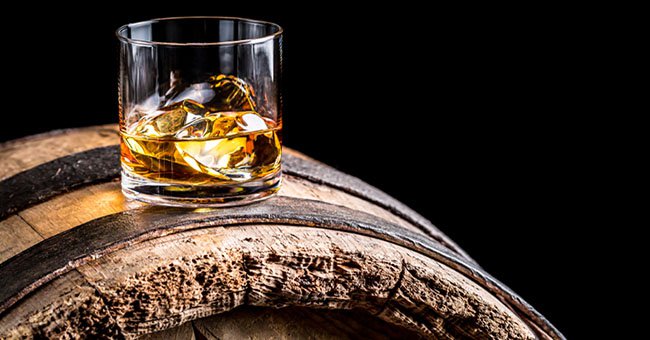Last month, Jim Beam won the latest in a series of lawsuits regarding the right to use the word “handcrafted” to describe their whiskey on labels. It’s difficult to find anyone in the industry who doesn’t dismiss the lawsuit as frivolous, but the controversy over the word — and what it means in the whiskey world — is still a hot button issue.
“Making whiskey is very much an industry that requires machines,” says Jamie Boudreau, the owner of whiskey-focused Seattle bar Canon (winner of the “World’s Best Spirits Selection” at Tales of the Cocktail in 2015). He dismisses the word as meaningless, describing handcrafted methods as inefficient and inconsistent. Fred Minnick, author of “Bourbon Curious: A Simple Tasting Guide for the Savvy Drinker,” takes a more balanced stance: “Bourbon requires a certain level of hand involvement and a certain level of machine involvement, there’s no way around it.” But he agrees with Boudreau that “handcrafted” doesn’t have a definition: “It’s a throwaway term that adds nothing to bourbon.”
Just a few miles from Boudreau’s bar, Nathan Kaiser of 2bar Spirits distills a whiskey he does consider—and labels as—handcrafted. Still, looking around the Seattle warehouse where local grains undergo the entire whiskey making process under one roof, there’s no shortage of machines.
Kaiser argues that his and similar distilleries can consider product handmade “if a human touches the process between the grain and the bottle.” He describes checking the grist of his grain by hand between millings, and shows off the paddle used, until recently, to stir the mash by human power. Processes can be automated, he says, but at 2bar he and his team make every drop and use their own senses at every step, and that, to him, is the difference.
Still, Kaiser sides with Jim Beam when it comes to the lawsuit itself. “There’s no Federal definition [of the word],” he says, and he’d rather let customers decide for themselves. “Consumers are smart enough, they’ll figure it out.” That sentiment echoes Judge Larry Alan Burns’s ruling that “the use of ‘handcrafted’ on Jim Beam’s bourbon bottle wouldn’t mislead a reasonable consumer.”
Kaiser is confident that when whiskey drinkers taste his product, they will find the character that he believes handcrafting imparts. Handcrafting provides character, he says. “We know what’s going on by the smell of the still.” To him, when his whiskey bottles say “handcrafted,” “it says authenticity.”
Consumers agree with Kaiser—and with the marketing folks at Beam who added “handcrafted” to the label—as a recent Harris Poll found that 59% of all adults think the descriptor “handmade” or “handcrafted” somewhat or strongly signified that a product was of high quality.
But, to a bourbon expert like Minnick, labeling a bottle as “handcrafted” is extraneous, obnoxious, and opens the industry to lawsuits like this one. “They’re vulnerable because they’re using language that’s not regulated.” He advises that all distilleries clean up the language on their labels, saying the most meaningful phrases he can see on a bourbon bottle would be “Bottled in bond” and “Straight bourbon whiskey.” His dream label would also include a mash bill, where the grains come from, what kind of wood the barrels used were made of, how many barrels were used in bottling, filtration method, and barrel entry proof. These details, he says, will help a consumer determine whether the spirit is what they want to be drinking. Boudreau, too, expresses a wish to see more information and less marketing on bottles, wishing they would say the true distillery that made the original product, and where the aging was done.
“It’s a competitive fight out there,” Minnick says, acknowledging that companies use terminology to catch attention, “but the truth is always going to be in how it tastes.” And here, Kaiser is in full agreement, saying part of what makes his bourbon “handcrafted” is that they taste every barrel and check it again when they bottle. “You could test with machines,” he says, “but what fun is that?”





